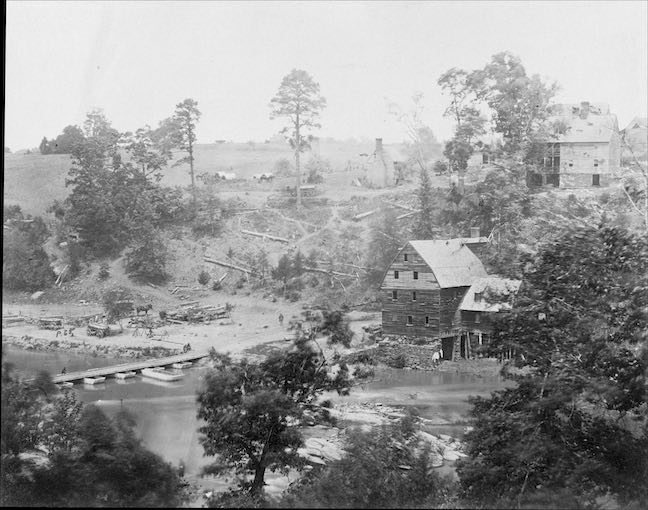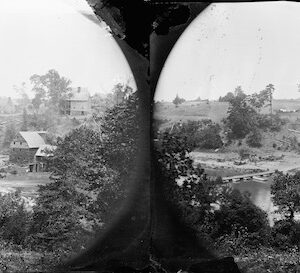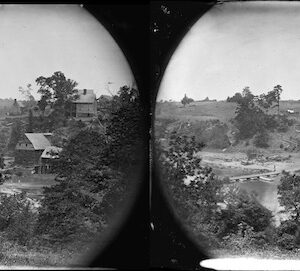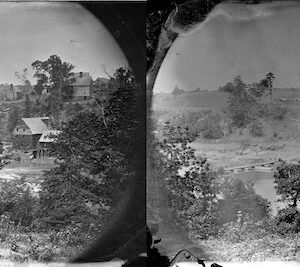| Credit: | by OSullivan (Timothy H.) |
|---|---|
| Date: | 1864.05.24 |
| Negative Size: | 8 in. x 10 in. |
| Equipment: | bridge pontoon (wood) |
| Locations & Lines: | Jericho Mills VA; North Anna River VA; Virginia |
| Military Units: | 5th Corps; 50th New York Engineers; Army of the Potomac; US Army |
| Structures & Establishments: | Jericho Mills (Jericho Mills VA); Jericho Mills pontoon bridge (North Anna River VA) |
| Transports: | bridge pontoon wagon; freight wagon |
| Sources: | Boston Athenaeum; Library of Congress; National Archives |
$6.99
File Details: AILTm, 800 DPI, TIFF, Original Photograph, 40.5 Mb
Image ID: AILT
Gardner’s Photographic Sketch Book Of The War. Vol. 2, No. 65. Jericho Mills, North Anna, Virginia. May, 1864. The North Anna is an exceedingly picturesque river, abounding in beautiful scenery; the old mills of Jericho being not the least remarkable among its many attractions. Here, on the 23rd of May, 1864, the Fifth Corps, under the leadership of Gen. Governeur [sic] K. Warren, performed one of the most dashing exploits of that campaign. Advancing quickly upon the river, they poured down the steep banks, driving all before them, and, with no delay for pontoons, dashed across and secured the position upon the other side, before the rebels could organize for opposition. General Warren was not allowed to hold, without a struggle, what he had so suddenly gained. Forming their masses in the woods, the enemy soon commenced a vigorous attack upon the isolated corps; but the Fifth Corps was not disposed to part with its laurels, and after a severe struggle, which cost them many men, the defeated Confederates withdrew. The pontoons arriving, bridges were laid, and the Sixth Corps passed over to take position with the Fifth. No further fighting of any consequence ensuing, the soldiers amused themselves by destroying a large portion of the railroad between Richmond and Gordonsville. That accomplished, the army recrossed the river, and proceeded to execute another of the flanking operations, which were the peculiar feature of Grant’s campaign against Richmond. One of these incidents characteristic of war, and which can hardly be prevented, where an army marches through hostile countries, took place here. Before the pontoon bridges were removed, some straggling soldiers entered one of the houses on the top of the bank, over the mill, and fired it, forcing the inmates to leave and seek refuge in the open air, where a heavy rain drenched them to the skin. They descended the hill, and crossed the pontoon bridge, a pitiful procession of women and wailing children, ignorant of the fact, that the house they were seeking for protection was likewise destroyed and the inmates driven off.
Usually attributed to Alexander Gardner.




